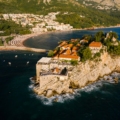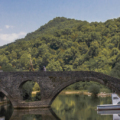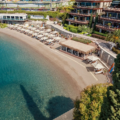Besides its majestic beauty and incredible historical and cultural heritage, Montenegro is famous for its enchanting tales, myths, and legends. These old stories mesmerize generations of locals and visitors who come here to enjoy the incredible landscapes and warm hospitality.
Myths and legends are part of the culture. Local folk that preserved them give you a glimpse of a soulful nation. These stories blur the line between reality and myth, making the exploration of Montenegro’s treasures even more magical.

Mythical stories thrive in Montenegro, from the legend of Our Lady of the Rocks and Bukumirsko Lake to the personal stories of three sisters. So keep reading and discover what is behind these most famous myths and legends.
Dive into tales of heroic warriors, mystical creatures, and enchanted landscapes that continue to captivate the imagination of locals and visitors in Montenegro
Top 5 Myths and Legends of Montenegro
Our Lady of the Rocks
One of Montenegro’s symbols is the Old Lady of the Rocks Island. Set right off the coast of Perast in the Bay of Kotor, the man-made island was formed over centuries by sinking old ships filled with rocks and building a bulwark of stones. The only structure on the island is the Roman Catholic Church of Our Lady of the Rocks.
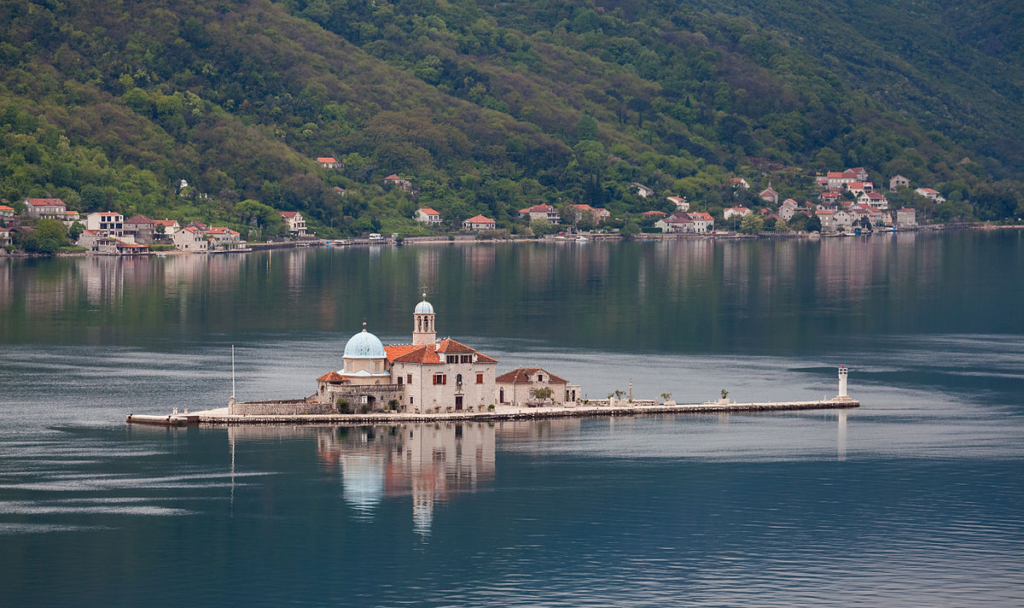
The story behind the island is more fascinating than the location itself. This myth has been transformed into a local tradition. According to legend, the island’s creation began on July 22, 1452. This is when local sailors Mortesic brothers discovered an icon of the Madonna and Child on a rock in the sea.
They took the icon home and prayed on it, as one of the brothers was very ill. He miraculously recovered, and the icon became a famous centerpiece in the local church. However, after some time, the icon disappeared. It was only found again at the same spot in the middle of the sea.

In gratitude for the miracle and protection the icon provided to the sailors, the brothers vowed to lay a rock in the bay and make an island where the icon was found. They threw stones and filled sunken ships next to the natural formation on the seabed, which resulted in the island we have today.
Ever since, Old Lady of the Rocks has become a sanctuary for sailors and their protectors, which is why many locals visit the island before embarking on a long journey.
This tradition continued over centuries, gradually raising the islet from the waters. The custom persists today with the annual fašinada event on July 22. During the day, locals row out and throw rocks into the sea, expanding the island’s surface.
Bukumirsko Lake Myth
Bukumirsko Lake, located in Kuči Mountains, 40 minutes away from Podgorica, offers a stunning view of the mountains, especially across the lake. It is one of the most photographed natural landmarks in our country. Numerous legends surround this lake, including stories about its creation. There are also tales of the origin of its name and the disappearance of the people who lived closeby.
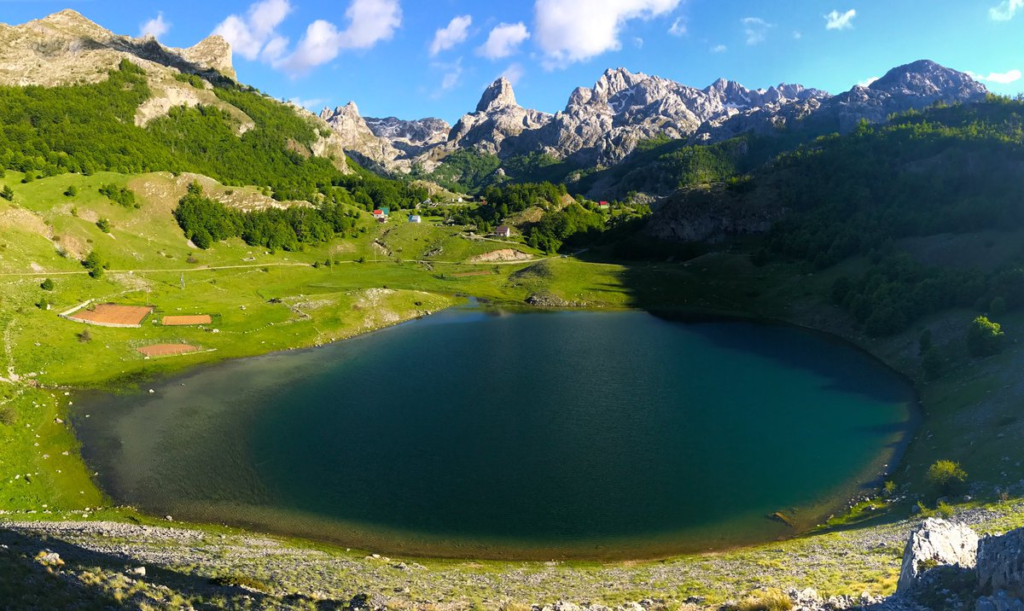
The lake bears the name of the non-Slavic, nomadic people who once lived on its shores Bukumirs. According to the legend, the lake was inhabited by a dragon, who occasionally caused local problems. Therefore, they decided to get rid of it. They piled a lot of wood on a rock above the lake and set it on fire. When the rock became hot, they pushed it into the lake, causing the water to boil.

As the legend states, to their surprise, instead of a dragon from the lake, a man on a white horse appeared and cursed the Bukumirs. He cursed them to destroy each other, which over time came true, and only stones remained around the lake. Today, there is a belief that no Bukumir will ever return to this part of Montenegro.
However, locals believe that a distant dragon descendant still lives in the lake. It is called Tritorus montenegrinus, an endemic salamander.
Three Sisters of Prcanj
One of the less-known legends in Montenegro comes from a small town in Boka Bay called Prcanj. It is renowned for its stunning location and breathtaking views. Strolling through Prčanj will bring you to the 17th- and 18th-century with stone villas, gardens, and olive orchards along the waterfront. Among well-designed villas, you will find one of the town’s most celebrated landmarks, the Tre Sorelle Palace or the Palace of the Three Sisters.
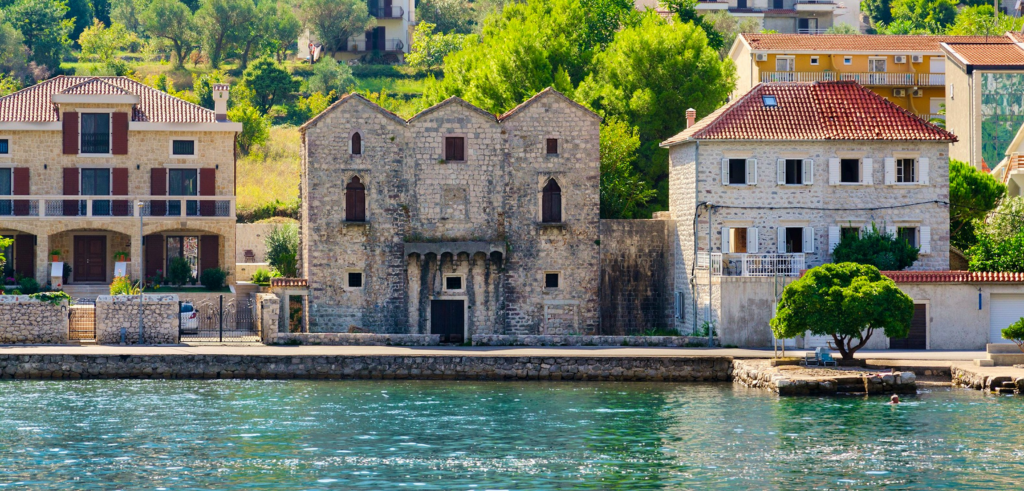
Once a renowned mansion dating back to the 15th century, the aristocratic Buća family built it. Today this palace stands as the ultimate reminder of myths and legends in Montenegro. According to the old tales, the palace was home to three sisters who all fell in love with the same sailor.
Read Also: Most Haunted locations in Montenegro
Each sister waited at her bedroom window for his return, but he never came back. Over the years, two sisters passed away, and their windows were boarded up. When the last sister died, her window remained unsealed, a poignant reminder of their story.

Therefore, the palace of Tre Sorelle stands as the material evidence of this folk tale, which has been passed down through generations in Prcanj.
Legend of Budva
One of the often-cited legends in Montenegro is the one about the origin of Budva. People believe that Cadmus, son of a Phoenician king and brother to Europa, established the city. These are the legendary figures in Greek mythology. Cadmus also introduced the alphabet to the Greeks and founded Thebes.
The legend states that Cadmus was sent to find his sister Europa. His journey led him to Delphi and then to Thebes, where he slew a divine dragon and grew Spartans from cow’s teeth. Upon his return home, Cadmus got married and enjoyed further conquests. However, his marriage to Harmonia cursed him, bringing him misfortune and leading to his abdication.
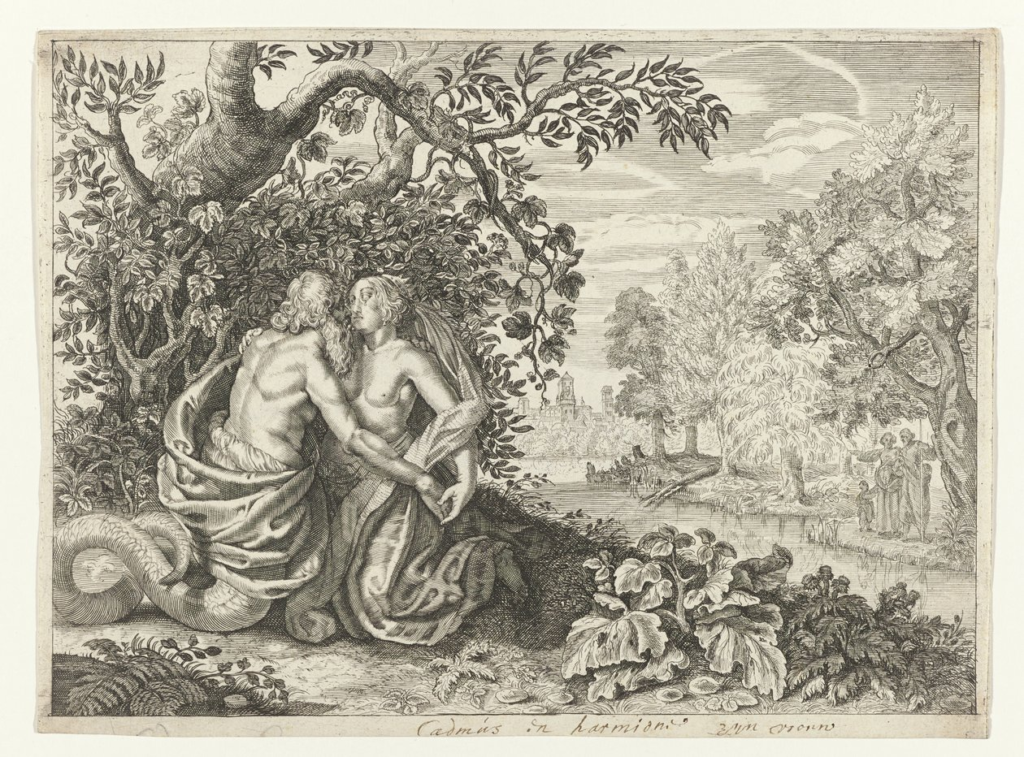
To escape misfortune, Cadmus and Harmonia moved north, founding Budva and Ohrid. During their time in the Balkans, Harmonia bore Illyrius, the ancestor of the Illyrian people. Some historians believe their final resting place could be hidden in Boka Bay. This is adding a layer of mystery to Cadmus’s enduring legacy.
The Mimosa Myth
Herceg Novi is no exception to the myths and legends. One of the town’s most cherished tales revolves around the mimosa flower, symbolizing forbidden love, compassion, and generosity. This is also a symbol of Herceg Novi as it blooms all around its streets. It truly represents a cherished natural wonder.

According to legend, the gods created the Bay of Kotor and once hit it with a fierce storm. Amidst the chaos, the fairy Alkima sailed through the bay searching for her human lover. This match was forbidden but she continued her journey despite this. Unfortunately, the storm was too heavy so that the Alkima boat began to sink.

Seeing her distress, several young men on the shore braved the tempest to rescue her. Grateful, Alkima offered them gold, but they declined. Instead, she gifted them the mimosa flower, a token of enduring beauty.
Today, the mimosa flower is a beloved symbol of Herceg Novi. Every February, the town celebrates the Mimosa Festival, a month-long event heralding the arrival of spring.





